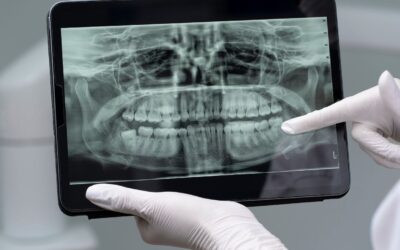As we age, even the simplest routines—like eating—can feel different. One question that puzzles many adults is, “Why does food stick to my teeth as I get older?” This seemingly minor annoyance can lead to bigger oral health problems like cavities, plaque buildup, or even gum disease. Changes in your mouth’s anatomy, reduced saliva production, worn enamel, or dental restorations may all contribute to this sticky situation.
In this article, we’ll break down the biological, dental, and lifestyle-related reasons food starts clinging to your teeth more. We’ll also discuss solutions, provide a detailed outline, and answer frequently asked questions so you can keep your smile healthy and confident—no matter your age.
Why Food Sticks to Teeth More as You Age
As you grow older, your body changes—including your oral health. Food sticking to teeth can be frustrating and even painful. Below, we explore several biological and mechanical causes of this issue. These are common but often misunderstood.
Your mouth undergoes changes that make it easier for food to cling. For example, enamel thins over time, creating tiny pits where food particles can lodge. Similarly, gum tissue may recede, exposing the tooth roots, which are rougher and more prone to catching food.
Dental work like fillings, crowns, or bridges may also cause small gaps or uneven surfaces where food easily becomes trapped. Add to this a dry mouth (xerostomia), common in older adults, and you have the perfect recipe for sticky teeth after meals.
Common Causes of Food Getting Stuck to Aging Teeth
1. Thinning Enamel and Tooth Surface Changes
-
As enamel wears down, tooth surfaces become less smooth.
-
Microscopic cracks and grooves catch food more easily.
2. Gum Recession
-
Receding gums expose tooth roots, which are not protected by enamel.
-
These exposed areas are more porous and sticky.
3. Dry Mouth (Xerostomia)
-
Aging and medications reduce saliva production.
-
Less saliva = less natural cleaning = more food residue.
4. Dental Restorations and Fillings
-
Ill-fitting crowns, bridges, or old fillings leave small gaps.
-
Food easily lodges in these pockets.
5. Poor Chewing Efficiency
-
Missing teeth or weak bite can cause uneven food breakdown.
-
Larger particles stick more during chewing.
How Age Affects Oral pH and Saliva
1. Lowered Saliva Flow Means More Plaque
Saliva helps neutralize acids and sweep away food. Aging adults often produce less saliva, leading to plaque buildup and food sticking.
2. Medication Side Effects
Many drugs (especially for blood pressure, allergies, or depression) reduce saliva. This indirectly causes food to stick more.
3. Changes in Oral pH Levels
An imbalanced pH can reduce enamel strength and alter bacterial activity, increasing food adhesion.
Signs You Need a Dental Checkup for Sticky Teeth
It’s time to visit your dentist if:
-
You constantly feel food between your teeth.
-
You experience bad breath or bleeding gums.
-
You notice increased tooth sensitivity.
-
Your fillings or crowns feel loose.
-
You’ve recently changed medications.
Tips to Prevent Food From Sticking to Your Teeth as You Age
Numbered List of Actionable Tips
-
Brush after every meal with a soft-bristle toothbrush and fluoride toothpaste.
-
Floss daily, especially after sticky meals.
-
Use a water flosser for hard-to-reach areas.
-
Stay hydrated to combat dry mouth.
-
Avoid sugary and sticky foods like caramel, dried fruit, and gum.
-
Visit your dentist every 6 months for a thorough cleaning and checkup.
Best Dental Tools for Older Adults Facing Food Build-Up
-
Interdental brushes: Perfect for cleaning around dental bridges or wide gaps.
-
Electric toothbrushes: Provide more thorough cleaning than manual ones.
-
Xylitol gum or mouth spray: Helps stimulate saliva.
-
Saliva substitutes: Available over the counter to relieve dry mouth symptoms.
Can Age-Related Dental Changes Be Reversed?
Short Answer: No, but they can be managed effectively.
Discussion:
While you can’t undo enamel loss or gum recession, you can:
-
Strengthen your teeth with fluoride treatments.
-
Replace failing dental work with new restorations.
-
Maintain a balanced diet that supports oral health.
-
Use remineralizing toothpaste or prescribed dental treatments.
How Can a Father Lose Visitation Rights Due to Oral Neglect in a Child?
Although not a common association, in custody battles, oral neglect (especially repeated dental issues) may be seen as a sign of broader neglect. If a child consistently suffers from untreated dental problems—like food sticking to teeth due to poor hygiene—it could reflect on a parent’s caregiving ability. In extreme cases, this can lead to loss of visitation rights, especially when paired with other signs of neglect or medical inattention.
FAQs
Q1: Is food sticking to teeth a sign of tooth decay?
A: Not always, but it can be. If food consistently gets stuck in one area, it might indicate decay or a poorly fitted filling.
Q2: Can gum recession be stopped or reversed?
A: Recession can’t be reversed but can be slowed with proper dental care and sometimes corrected with gum grafts.
Q3: What foods are most likely to stick to aging teeth?
A: Sticky candies, caramel, dried fruits, white bread, and some meats are more likely to get stuck.
Q4: Should I use mouthwash if food keeps sticking?
A: Yes. Use an alcohol-free, antibacterial mouthwash to help dislodge food particles and kill bacteria.
Q5: Does drinking more water help reduce food sticking?
A: Absolutely. Staying hydrated boosts saliva flow, which naturally cleans your teeth.
Conclusion:
Getting older doesn’t mean you have to accept dental discomfort. If you’re asking, “Why does food stick to my teeth as I get older?”, know that you’re not alone—and there are proven ways to fight back. Regular dental care, mindful eating, better oral hygiene habits, and saliva-boosting techniques can make a big difference. Pay attention to your body and visit your dentist regularly. Prevention is always better (and cheaper) than cure.



